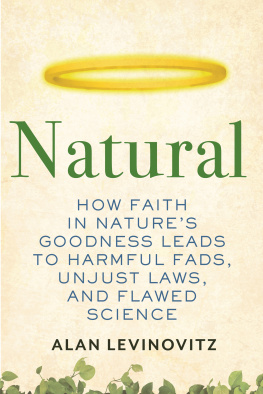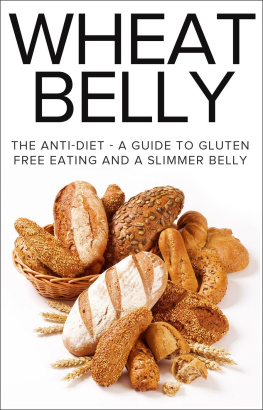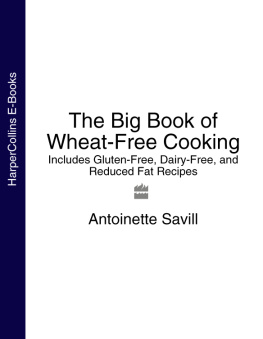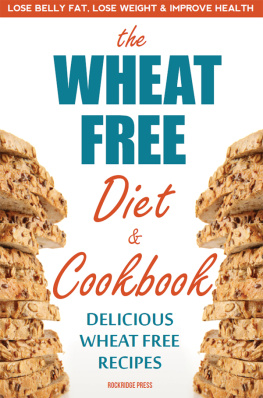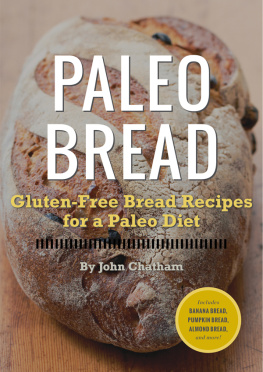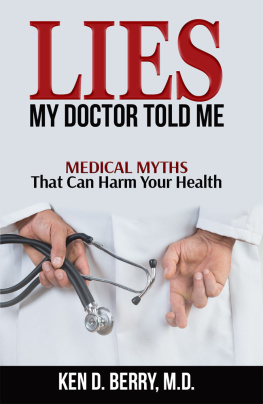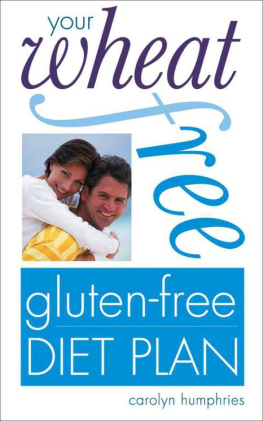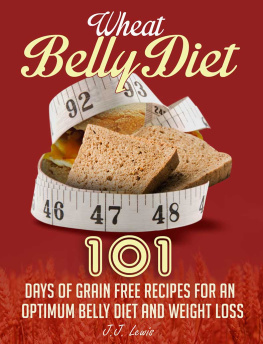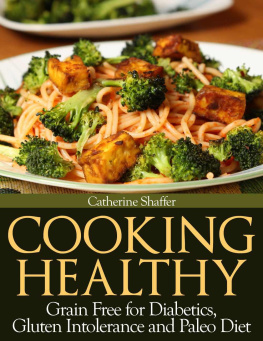The UNpacked Diet, UNpacked Margin Notes
is adapted from Dr. Mark Hymans 10-Day Detox . The list of ailments is the same. It uses nine days instead of ten because nine is a lucky Chinese number.
insecure and vulnerable.
the myth of paradise past.
the implication is that life was safer back then. The age-adjusted risk of dying dropped 60 percent between 1935 and 2010.
as antiestablishment, appealing to people who are frustrated with mainstream medicine.
new research and fails to disclose disagreement in the scientific community about whether and how diet is connected to these problems.
of paradise past and noble savages using unsubstantiated references to healthy traditional cultures. There is no consensus about the extent to which diet plays a role in the health of any of these cultures. Not only that, most accounts of healthy traditional cultures are outdated or anecdotal.
. Excludes the information that snack and candy consumption in America is twice that of almost all other countries. Also fails to mention that overall total food consumption is highest per capita in America.
general health is rarely accurate. Our life spans are longer than ever, and there is considerable scientific debate about supposed increases in conditions like ADHD, autism, and cancer.
are powerful but do not constitute decisive evidence of anything.
of good and evil in which anything associated with industry must be bad.
of modernity.
with an idealized vision of Nature with a capital N.
simple scapegoat to blame for all our health problems.
. Nanoplastic is a real term, but it does not mean small plastic particles. It sure sounds scary, though.
and Big Food = Supervillains!
.
, but there are traces of many things in our bodies that are dangerous at higher doses. The dose makes the poison.
associations made in this paragraph are based on a few in-vitro and animal studies. Establishing facts about what causes cancer in humans requires many human studies and epidemiological studies.
a single study, conducted on primates, with very tentative conclusions.
always make recommendations based on sound science. The Breast Cancer Fund is basing their recommendations on the kind of studies mentioned above.
a study isnt funded by industry doesnt mean it is reliable or free of bias.
levels of BPA are still safe, then this doesnt matter. The highest levels identified in the study still fall well below the FDAs guidelines and even the more conservative EPA limits.
of nonindustry bias. Here are some quotes from the Silent Spring website, illustrating their distrust of scientific methodology and impatience with the scientific process:
[The Silent Spring Institute] decided to create a laboratory of their own.... Their background was social activism, not scienceand that gave them an advantage.
We didnt want science as usual. We didnt want to fund scientists that would go away and then come back with a report ten years later.
in prestigious journals arent always reliable. See the following comment:
participated in the study. The diet lasted for three days.
with MSG and salt, regulatory action, especially when it comes to infant safety, often jumps the gun and creates the illusion of a scientific consensus. In a 2012 press release, the FDA stated that the reason for their BPA ban was abandonment, which means companies had stopped the practice of using BPA in infant bottles. The release included the explicit statement that safety information is not relevant to abandonment.
thing to say containers release chemicals. Its quite another to prove a connection between those chemicals and health problems.
works for PlastiPure, a company with a product line of plastics whose mission is to ensure that estrogenic chemicals will not leach into foods, drinks, and other materials. That doesnt mean his study is wrongbut it does mean we should extend the same skepticism to him that we would to an industry-funded study asserting the safety of plastics.
scientific name means nothing, but it helps to establish expertise and invoke fear of modernity.
because industry denies something doesnt mean the opposite is true.
, the Consumers Union also emphasized that the risks were small.
... True, but who cares? Legal safety levels for chemicals can differ drastically between countries and public health organizations, and routinely have no basis in sound science.
controversial. Many experts have suggested that rates of autism are not, in fact, rising, and better detection and expanded criteria account for the perceived epidemic.
a role... or it could not.
... or it may not.
.
doesnt mean good science. Every link in this sentence is based on a single study, sometimes with very tenuous conclusions.
not causation.
notes that the finding is only a correlation between the amount of BPA in the body and obesity, rather than evidence that one causes the other.
levels tended...
not causation!
likely a coincidence.
irrelevant. These factory workers were breathing in large quantities of styrene. The monotonic fallacyif a lot is bad, a little is also badcomes into play.
harm to the digestive system does not mean that ingesting small amounts of styrene is likely to be harmful.
authorities? Turns out mostly alarmist, unreliable ones. Has your doctor ever mentioned this to you?
generally focus on environmental concerns, not health concerns.
sounds excessive, but only without comparison data from other countries. Like our salt consumption, American bottled water consumption is lower than that of many other countries, including Mexico, Thailand, Italy, Belgium, Germany, the United Arab Emirates, and France.
are not alarming if they have no health implications.
confirmed that the levels were toxic. The dose makes the poison .
allows you to generate custom charts like these. Example: Per capita consumption of cheese from 200009 correlates almost exactly with number of people who died by becoming tangled in their bedsheets.
air conditioners nor many vaccines. Fear of modernity, again.
also long been controversial. There is no consensus on the connection between aluminum and Alzheimers.
makes the poison . The dose makes the poison. The dose makes the poison.
leaps that no reputable scientist would ever endorse.
in-vitro study proves nothing.
sodas have not been found to contribute to weight gain, except insofar as those who drink them might also consume more calories.
, thats totally insane.
Blaylock. Remember him from MSG? And government conspiracy chemical trails?
is this a simple correlation, but it also correlates autism with injected aluminum, not aluminum from soda cans.
degrees distract you from focusing on the argument and the science. Amy Yasko is a controversial figure who endorses completely unfounded techniques for curing autism.
sentences dont actually make sense. They just sound scary.
comes from some random website that sells cleansing, detox, natural sleep, and weight-loss supplements.
experienced two or more of these symptoms? If you havent, youre probably superhuman.
and the next are from a naturopathic doctors website. As his sources he cites a book called Staying Healthy with Nutrition, published by Celestial Arts of Berkeley, California, and another book, called Medical Nutrition From Marz, based on the 19th-century philosophy of Nature Cure.
study that examined correlations between BPA and highly subjective variables in three-year-olds, including poor emotional control and inhibition.
mean BPA is toxic to fetuses, infants, and children at current levels of exposure. It means BPA may be toxic at some level of exposure, and further research is warranted.
Next page

